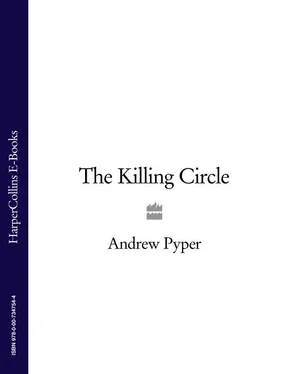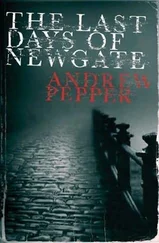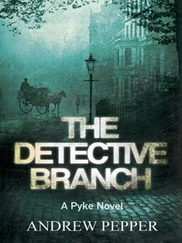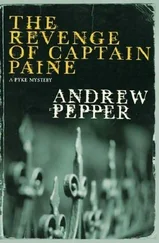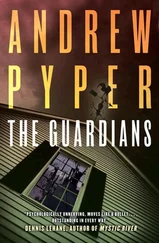Conrad White asks him what he hopes to achieve over the course of the meetings to come, and Ivan considers his answer for a long moment. "When I bring my train into a station, I see the faces of all the people on the platform flash by,” he says. "I just want to try and capture some of them. Turn them into something more than the passengers on the other side of the glass who get on, get off. Make whole people out of them. Something I can hold on to. Some one ."
As soon as Ivan finishes speaking, he lowers his head, fearing he’s said too much. I have to resist the impulse to go to him, offer a brotherly hand on his shoulder.
And then I notice his hands. Oversized gloves resting atop his knees. The skin stretched like aged leather over the bones. Something about those hands instantly dissolves the notion of going any closer to Ivan than is necessary.
The portly fellow beside Ivan introduces himself as Len. He looks around at each of us after this, grinning, as though his name alone suggests something naughty. "What I like about reading,” he goes on, "is the way you can be different people. Do different things. Things you’d never do yourself. If you’re good enough at it, it’s like you’re not even imagining any more."
This is why Len wants to write. To be transformed. A big kid who has the look of the stayat-home gamer, the kind whose only friends are virtual, the other shut-ins he posts on-line messages to inquiring how to get to Level Nine on some shoot-the-zombies software. Who can blame him for wanting to become someone else?
The more Len talks about writing, the more physically agitated he becomes, wriggling his hefty hips forward to the edge of his chair, rubbing the armrests as though to dry his hands of sweat. But he only gets really excited once he confesses that his "big thing” is horror. Novels and short stories and movies, but especially comic books. Anything to do with "The undead. Presences. Werewolves, vampires, demons, poltergeists, witches. Especially witches. Don’t ask me why."
Len shows all of us his loopy grin once more. It makes it hard not to like the guy. His passions worn so plainly, so shamelessly, I find myself almost envying him.
Sitting beside Len’s nervous bulk, Angela looks small as a child. Part of this illusion is the result of her happening to occupy the largest chair in the room, a wing-backed lounger set so high the toes of her shoes scratch the floor. Other than this, what’s notable about Angela’s appearance is its lack of distinction. Even as I try to sketch her into my memory I recognize she has the kind of face that would be difficult to describe even a few hours from now. The angles of her features seem to change with the slightest shift, so that she gives the impression of being a living composite, the representative of a general strain of person rather than any person in particular.
Even what she says seems to evaporate as it drifts out into the room. Relatively new in the city, having arrived via "a bunch of different places out west". The only constant in her life is her journal. "Except it’s not really a journal,” she says, and makes an odd sound with her nose that might be a stifled laugh. "Most of it is made up, but some of it isn’t. Which makes it more fiction than, like, a diary, I guess."
With this, she stops. Slides back into the chair and lets it swallow her. I keep watching her after she’s finished. And though she doesn’t meet eyes with anyone else in the circle, I have the notion that she’s recording what everyone says just as deliberately as I am.
Next is Evelyn. The deadpan pixie in a biker jacket. I’m a little surprised to learn that she is a grad student at the University of Toronto. It isn’t her youth. It’s the outfit. She looks more like Courtney Love when she first fell for Kurt than the fellowship winner who can’t decide between Yale, Cornell or Cambridge to do her Ph.D. Then the answer comes: her planned dissertation will be a study of "Dismemberment and Female Vengeance in the 1970s Slasher Film". I remember enough of university to know that such topics are best handled by those in costume.
We’re now all the way around to the latecoming giant. When Evelyn’s finished speaking, there’s a subtle positioning of our bodies to take him in, more an adjustment of antennae to pick up a distant signal than the directness required in making eye contact. Still, all of the circle can steal a look at him except for me. Given his proximity, I would have to turn round and tuck my leg under to see him straight on. And this is something I don’t want to do. It may only be the room’s unfamiliarity, the awkwardness in meeting strangers who share little other than a craving for self-expression. But the man sitting to my left radiates a darkness of a different kind from the night outside. A strange vacancy of sympathy, of readable humanness. Despite his size, it’s as though the space he occupies is only a denser form of nothing.
"And you?” Conrad White prompts him. "What brings you to our circle?"
The giant breathes. A whistling that comes up through his chest and, when exhaled, I can feel against the back of my hand.
"I was called,” he says.
"’Called’ in the sense of pursuing your destiny, I take it? Or perhaps a more literal calling?"
"In my dreams."
"You were summoned here in your dreams?"
"Sometimes—” the man says, and it seems like the beginning of a different thought altogether. "Sometimes I have bad dreams."
"That’s fine. Perhaps you could just share your name with us?"
"William,” he says, his voice rising slightly. "My name is William."
My turn.
I say my name aloud. The sound of those elementary syllables allows me to string together the point form brief on Patrick Rush. Father of a smart little boy lucky enough to take his mother’s looks. A journalist who has always felt that something was missing from his writing. (I almost say "life” instead of "writing", a near-slip that is as telling as one might think). A man who isn’t sure if he has something to say but who now feels he has to find out once and for all.
"Very good,” Conrad White says, a note of relief in his voice. "I appreciate your being so frank. All of you. Under the circumstances, I think it only fair that I share with you who I am as well."
Conrad White tells us that he has recently "returned from exile". A novelist and poet who was publishing in Toronto, back just before the cultural explosion of the late sixties that gave rise to a viable national literature. Or, as Conrad White puts it evenly (though no less bitterly), "The days when writing in this country was practiced by unaffiliated individuals, before it took a turn toward the closed door, the favoured few, the tribalistic." He carried on with his work, increasingly feeling like an outsider while some of his contemporaries did what was unimaginable among Canadian writers up to that point: they became famous. The same hippie poets and novelists that were in his classes at UofT and reading in the same coffee houses were now being published internationally, appearing as "celebrity guests” on CBC quiz shows, receiving government grants.
But not Conrad White. He was working on a different animal altogether. Something he knew would not dovetail neatly with the preferred subject matters and stylistic modes of his successful cohorts. A novel of "ugly revelations” that, once published, proved even more controversial than he’d anticipated. The writing community (as it had begun to regard itself) turned its back on him. Though he responded with critical counter-attacks in any journal or pamphlet that would have him, the rejection left him more brokenhearted than livid. It prompted his decision to live abroad. England, at first, before moving on to India, southeast Asia, Morocco. He had only returned to Toronto in the last year. Now he conducted writing workshops such as these to pay his rent.
Читать дальше
